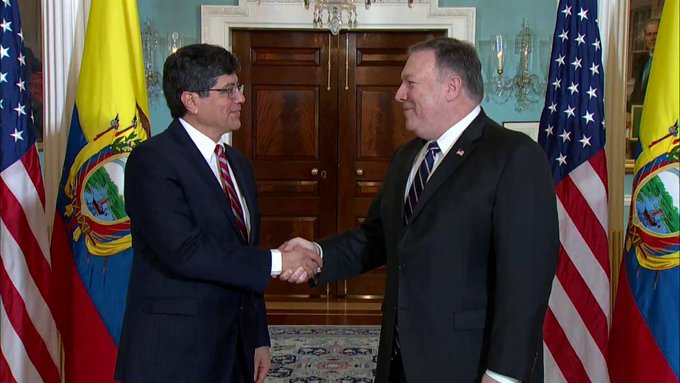Following the 2016 US election, the US intelligence apparatus made it clear that the prosecution of Julian Assange was a top priority.
While it’s clear that President Trump and members of his campaign were fans of WikiLeaks during the 2016 US election – things changed following the publication of the “Vault 7” leaks in March 2017, which consisted of tools used by the CIA to hack into smartphones, computers and internet-connected televisions.
Vice President Mike Pence considered the leak equivalent to “trafficking in national security information,” threatening to “use the full force of the law and resources of the United States to hold all of those to account who were involved.”
Meanwhile, eleven days after the April 2, 2017 election of Ecuador’s new president, Lenin Moreno, then-CIA Director and current Secretary of State Mike Pompeo began using strong language directed at Assange – calling WikiLeaks a “hostile non-state intelligence service.” Shortly thereafter, then-Attorney General Jeff Sessions said that arresting Assange was a “priority.”
Five months later, Pompeo equated WikiLeaks to al-Qaida and the Islamic State – arguing that they “look and feel like very good intelligence organizations,” adding “[W]e are working to take down that threat to the United States.”
To that end, WikiLeaks tweeted on Tuesday a link to a TruthDig article by Gareth Porter, as well as a tweet by the State Department featuring Pompeo meeting with the Ecuadorian Foreign Minister, Jose Valencia Amores.
Yesterday: https://twitter.com/StateDept/status/1067050192673751040 …
✔@StateDept
.@SecPompeo greets Ecuadorian Foreign Minister Jose Valencia Amores at the Department of State. @cancilleriaec @usembassy_quito @EmbajadaEcuUSA

…click on the above link to read the rest of the article…

